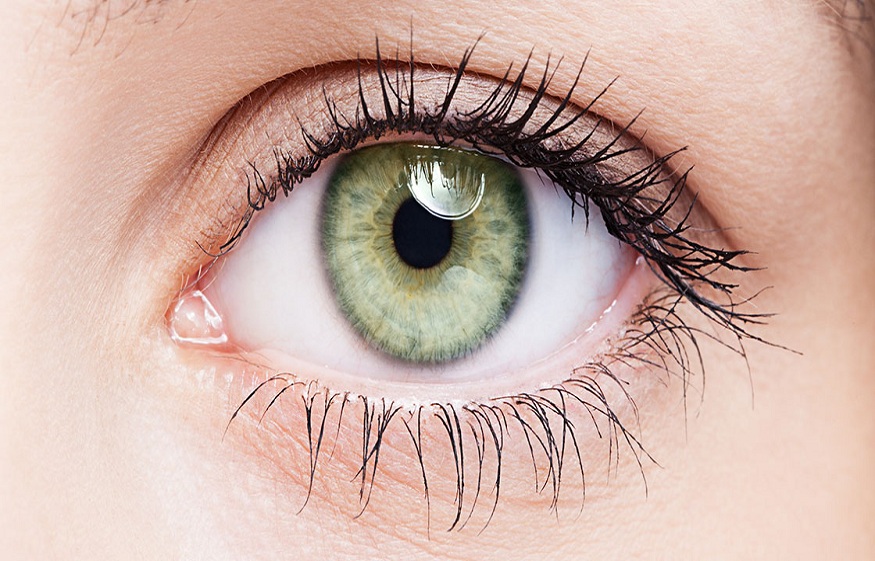Keratoconus is one of several eye disorders that can impair your eyesight. While not an emergency, this ailment can impact your cornea and overall vision. Can keratoconus be cured if you’ve been diagnosed?
Continue reading to learn more about keratoconus, such as what it is, how it affects you, and whether it is treatable.
WHAT EXACTLY IS KERATOCONUS?
Keratoconus is a disorder in which the cornea, or the transparent front surface of the eye, thins and bulges outward. Collagen, little protein fibres that help hold your cornea in place, can deteriorate and cause difficulties.
Weak fibres can’t keep their shape, causing your cornea to become cone-shaped and worsening over time. Keratoconus affects your vision in two ways. First, as your cornea changes shape into a cone, its normally flat surface becomes wavy, a condition called irregular astigmatism.
Second, when the front of the cornea widens, your eyesight gets increasingly nearsighted. With this condition, seeing distant objects is difficult since everything appears blurry.
Other symptoms you may observe include:
- When only one eye is used, you have double vision.
- Near and distant objects appear hazy.
- Halos can be seen surrounding bright lights.
- Light striations
- Driving with blurry vision
Is Keratoconus Harmful to Your Vision?
Keratoconus, if left untreated, can cause serious vision loss since your cornea cannot focus without glasses or contact lenses. If eyesight is sufficiently impaired, certain cases of this illness may necessitate a corneal transplant.
Keratoconus patients should not get laser eye surgery such as LASIK. This surgery may weaken the cornea, even more, impairing your vision.
When you have vision problems, how does your optometrist diagnose the problem?
CAN KERATOCONUS BE HEALTHY?
Keratoconus has no cure. However, it can be properly managed with treatment. The severity of the condition determines the most effective treatment for this ailment. There are numerous treatments available to help control keratoconus efficiently.
TREATMENT FOR KERATOCONUS
Keratoconus treatment is determined by the severity of the condition and the rate at which it progresses. There are primarily two approaches to treating this problem. Treatments aim to delay the progression of keratoconus or to improve your vision.
Your optometrist can advise you on the best treatment options for you, which may include:
- Contacts lenses
- Keratoconus patients can benefit from a variety of contact lenses.
The severity of your illness will determine the ideal contacts for you. However, some options include the following:
- Soft contact lenses: In the early stages of keratoconus, soft lenses are appropriate for treating hazy or distorted vision. As the curvature of your cornea changes, you may need to modify your prescription numerous times.
- Gas permeable rigid lenses: Rigid gas permeable lenses are made of a harder substance. They are appropriate for patients with advanced keratoconus. The material may initially feel strange, but it will become more comfortable with time.
- Contact lenses with hybrid properties: Hybrid contact lenses contain a stiff gas-permeable centre surrounded by a softer lens. They have the potential to be more comfortable to wear than rigid gas-permeable lenses.
- Lenses for the sclera: Scleral lenses can help those with advanced keratoconus. This lens vaults over the cornea and rests on the whites of your eyes (sclera), resulting in a smooth visual surface.
- It is preferable to have your contacts fitted by an optometrist familiar with keratoconus, especially if you use scleral or hard gas-permeable lenses. When you get new contacts, you should get regular examinations to see if your lenses fit properly.
Cross-Linking of Corneal Collagen
Corneal collagen cross-linking is a relatively novel treatment for keratoconus. It entails employing eyedrop medication and ultraviolet (UV) light to strengthen the tissue within your cornea. It strengthens the links between the collagen fibres of the eye.
While this treatment may be helpful, it will not reverse any existing eye injury. Instead, corneal collagen cross-linking aims to keep your problem from getting worse.
Surgery
Surgery is usually recommended for severe cases of keratoconus that have resulted in significant changes to the cornea or your vision.
There are two essential surgical treatments depending on the location and severity of the bulging cornea. These surgical options are as follows:
- A full corneal transplant in which donor tissue replaces portions of the central cornea.
- Deep anterior lamellar keratoplasty (DALK): This treatment retains the inner lining of the cornea, reducing the risk of problems associated with a full corneal transplant.
If you have keratoconus, numerous therapies can help you manage it. Your optometrist can assist you in determining the best treatment for your needs.

